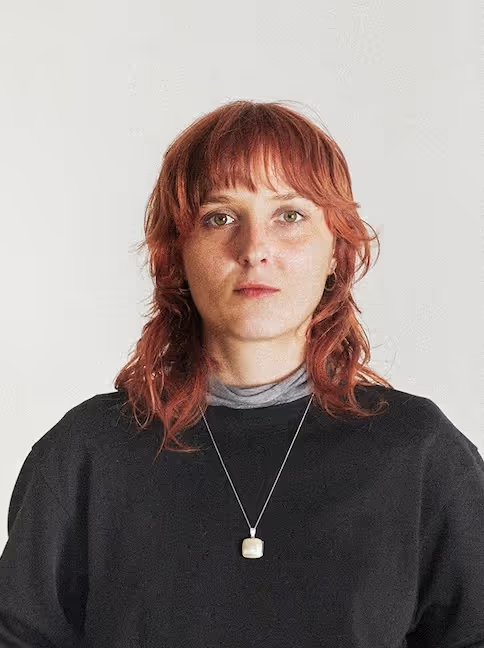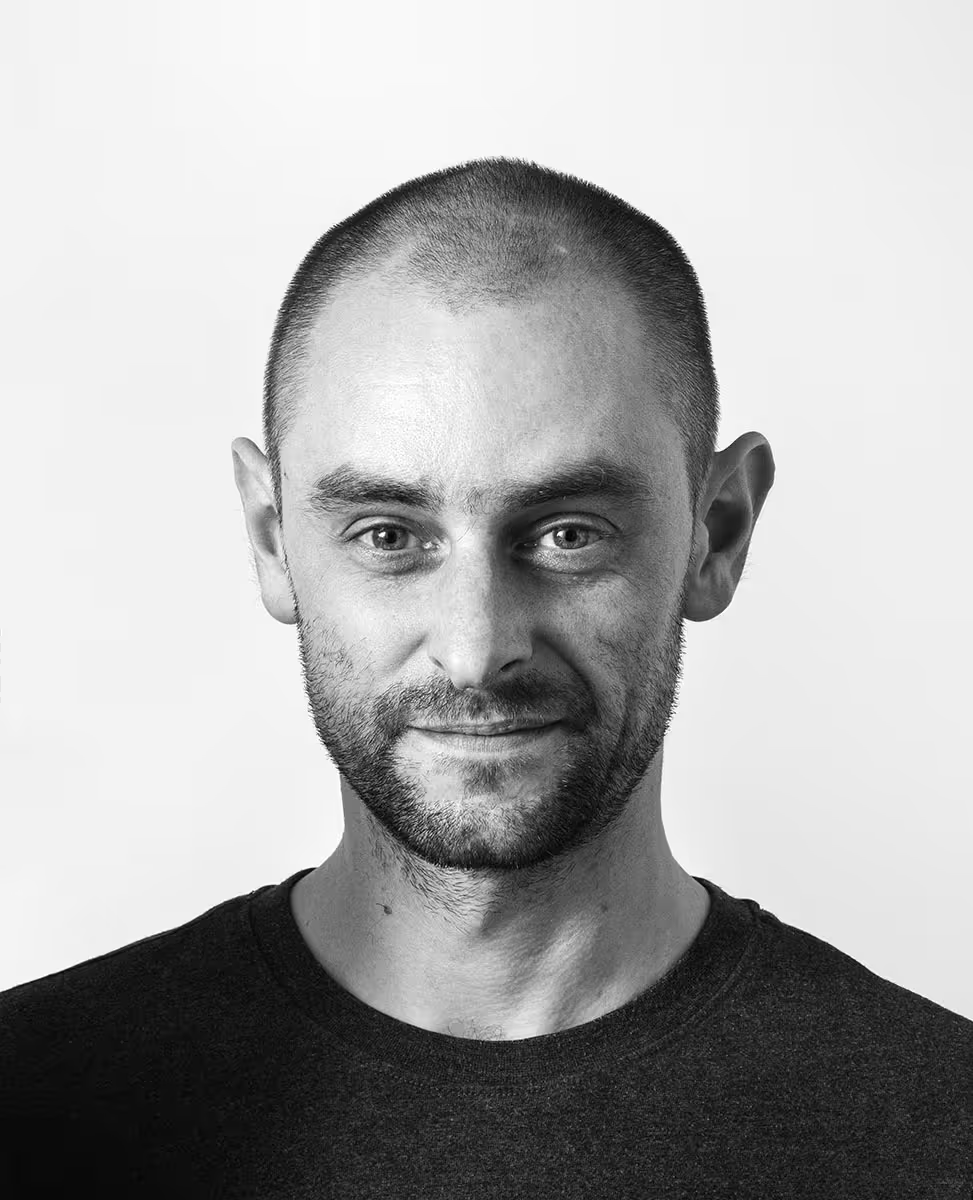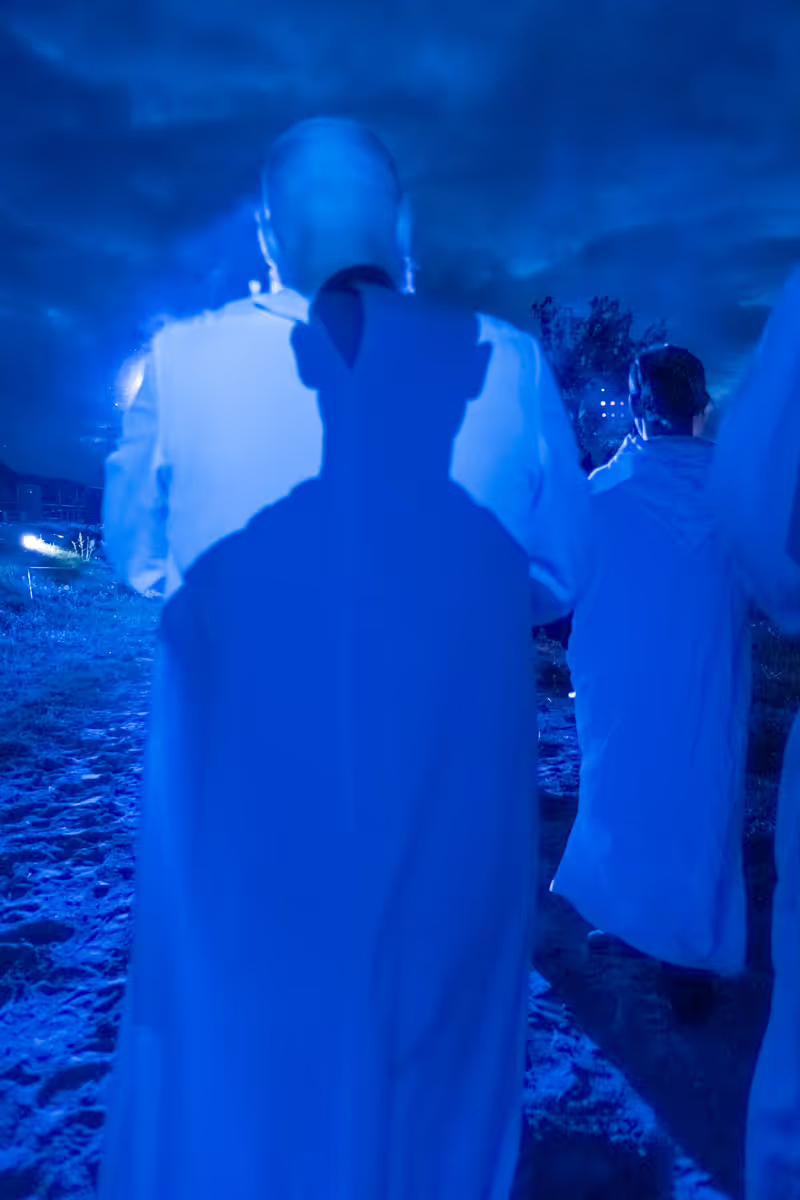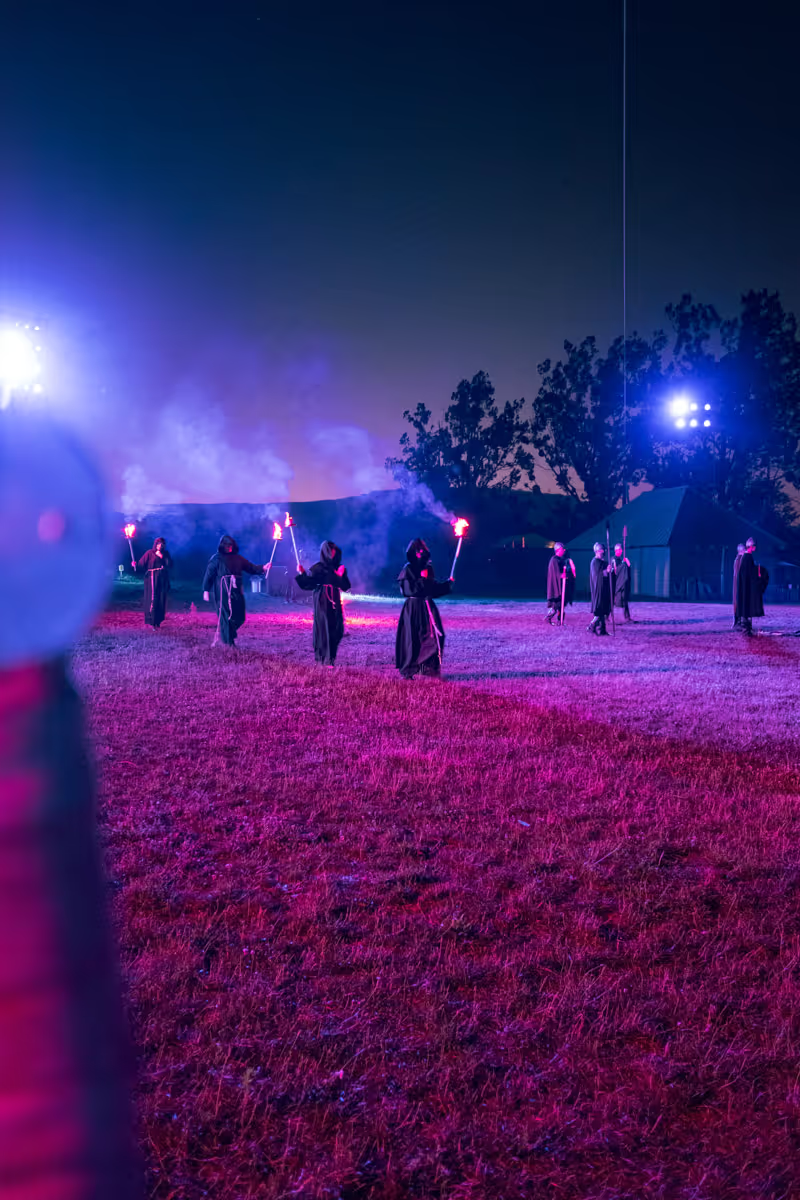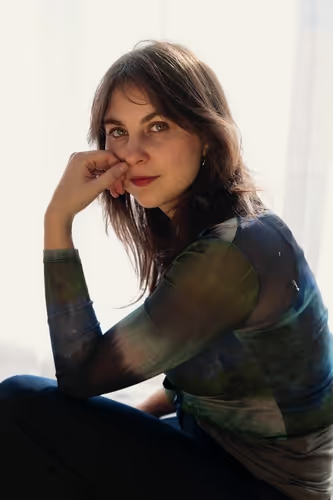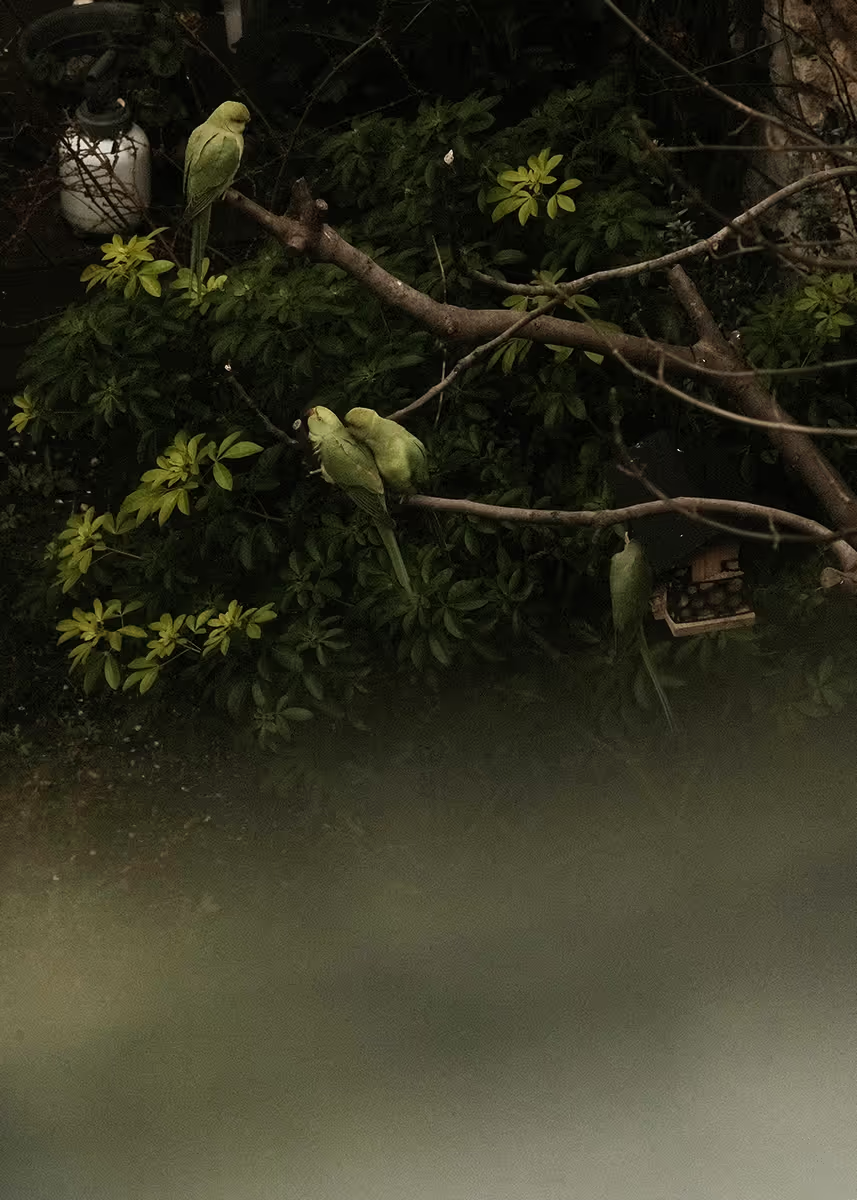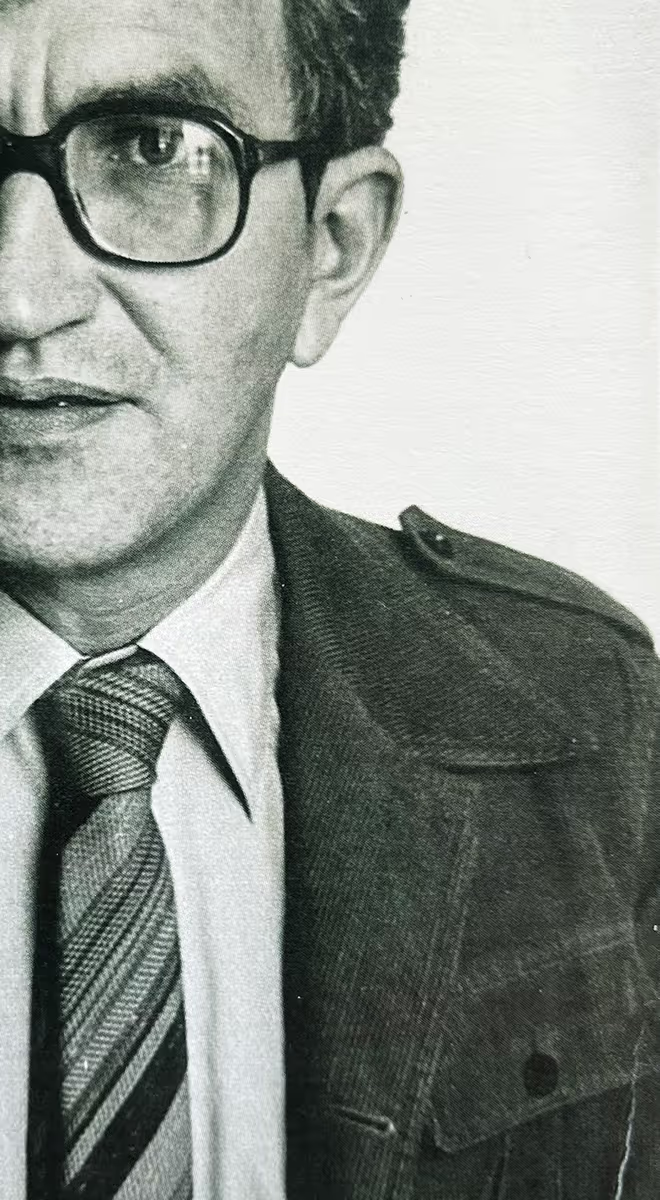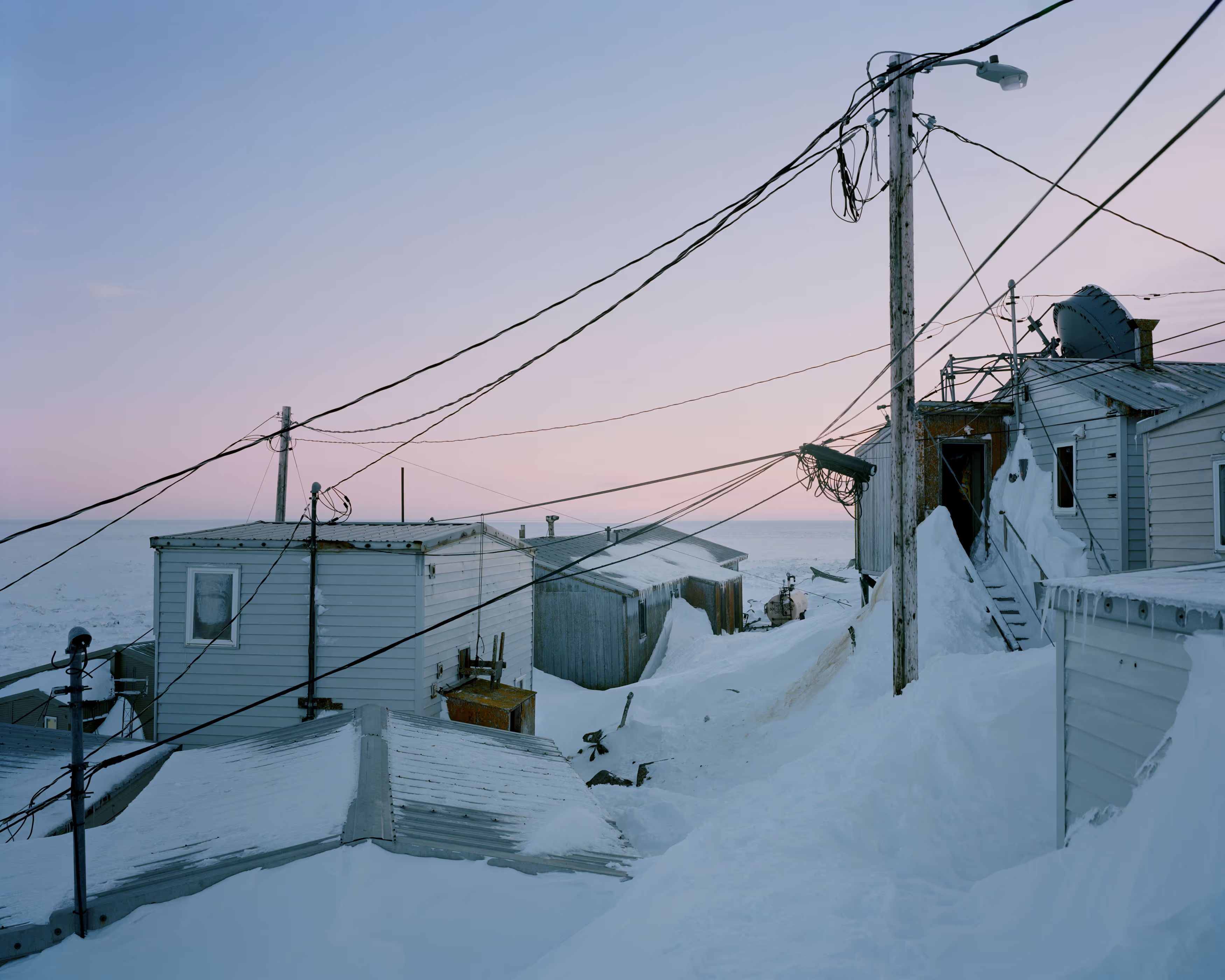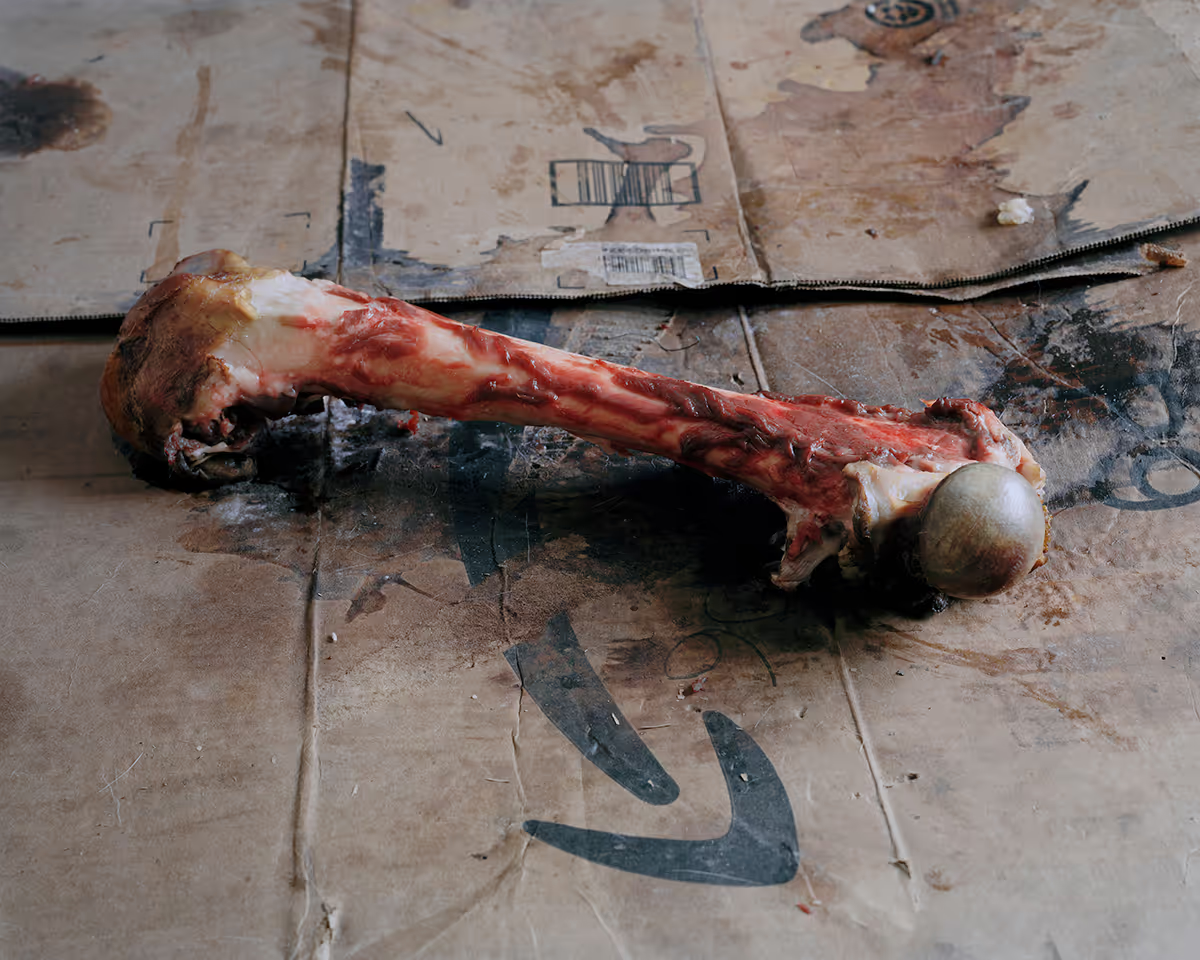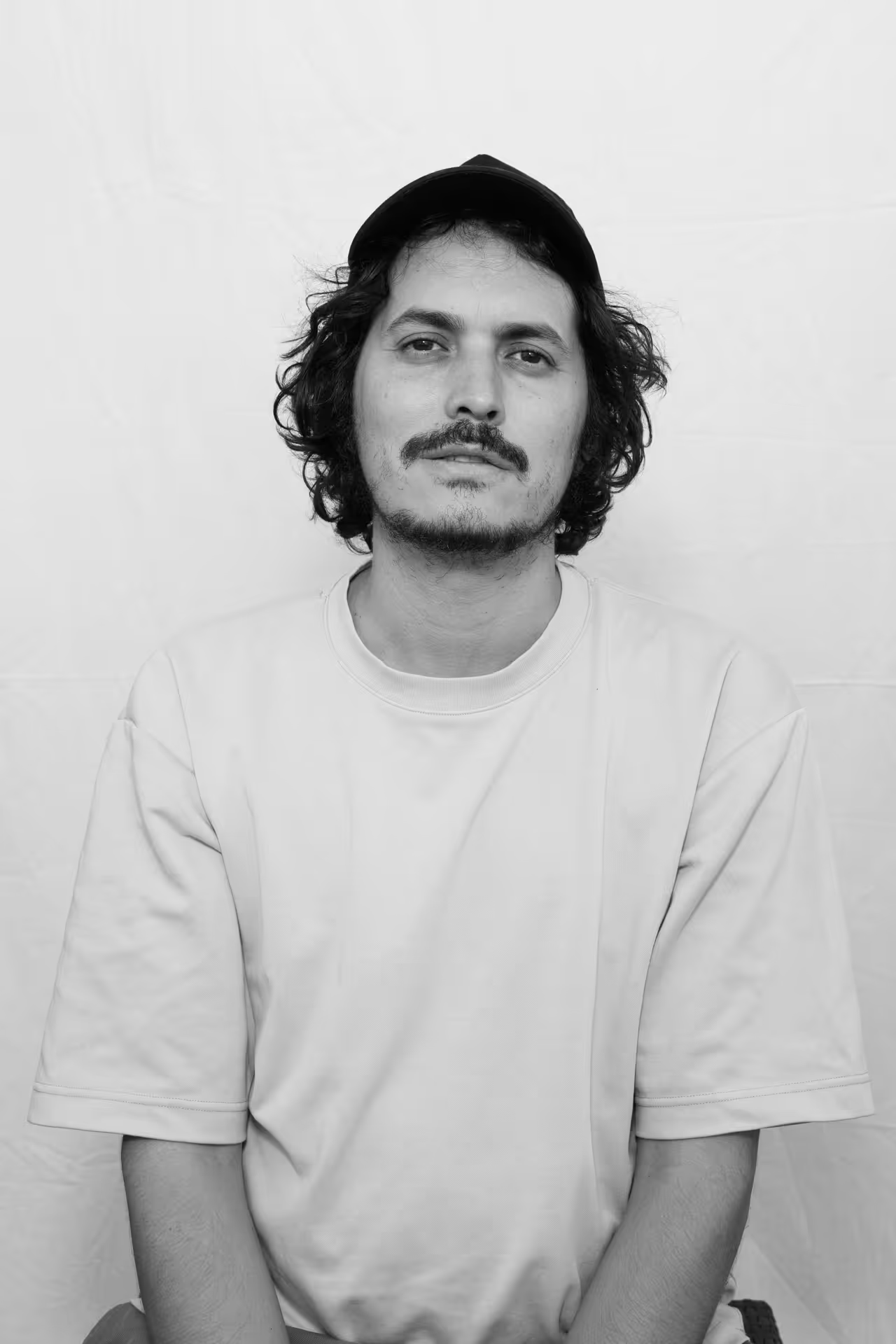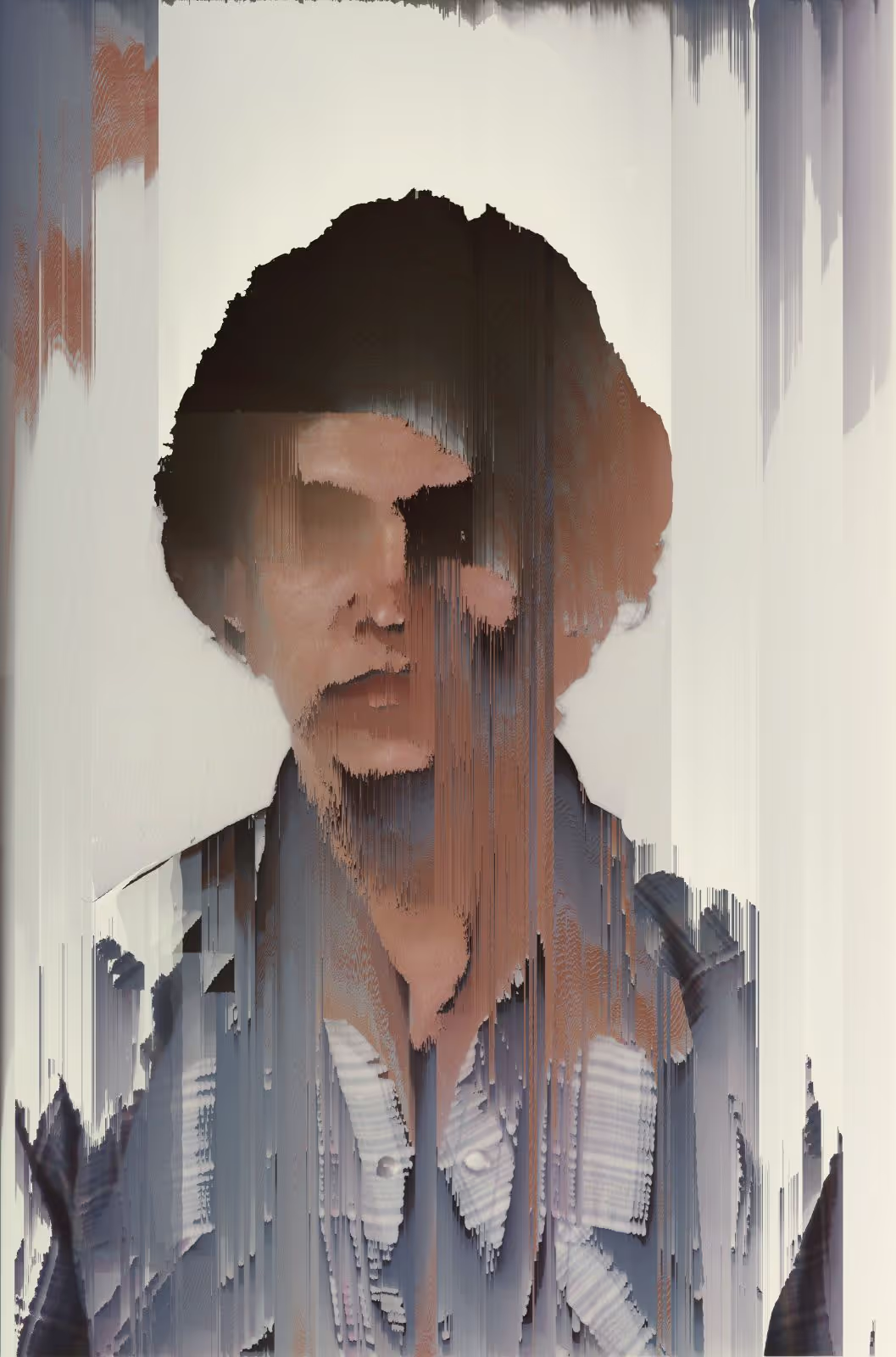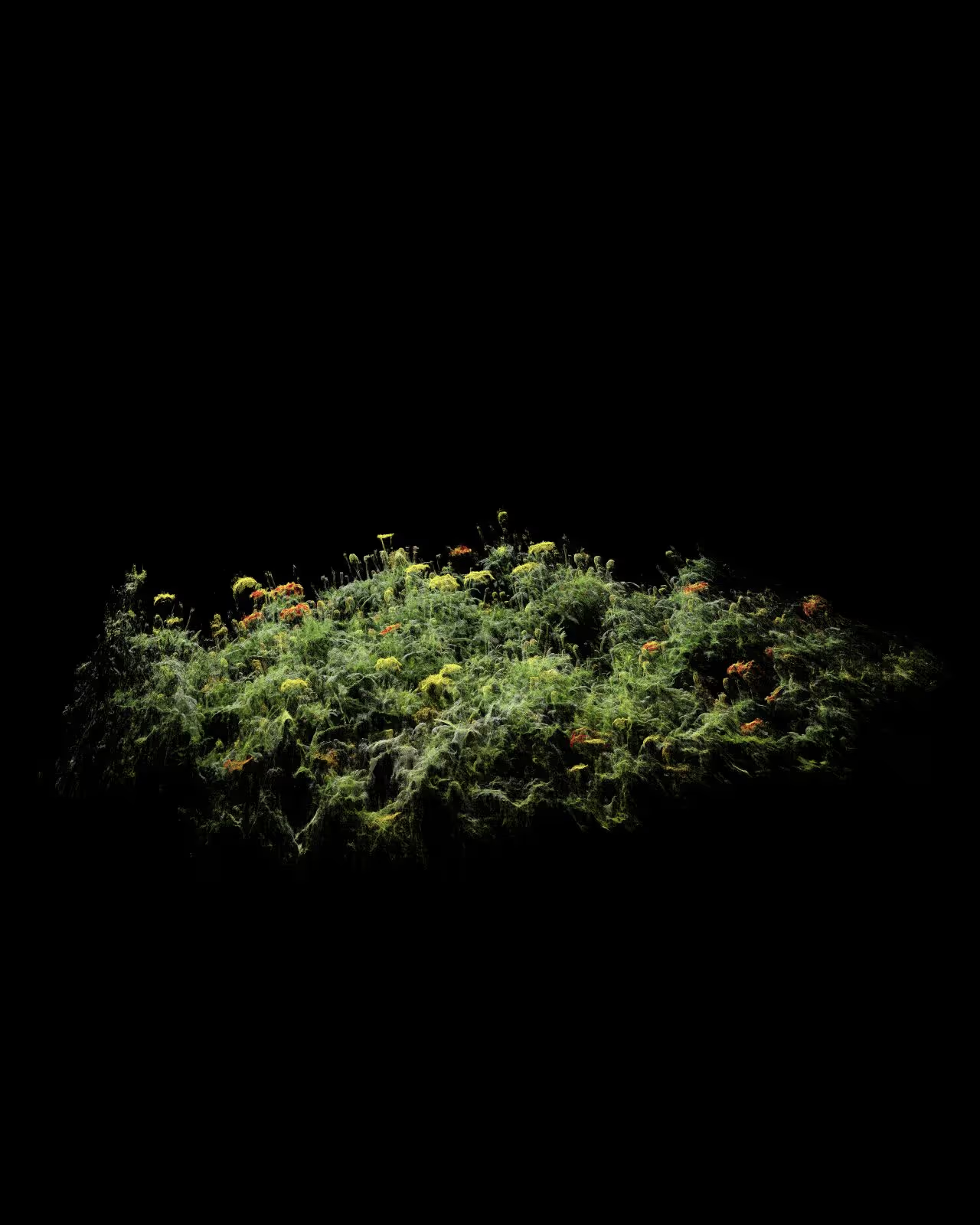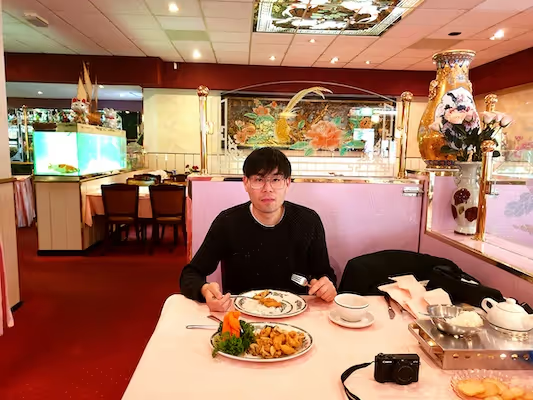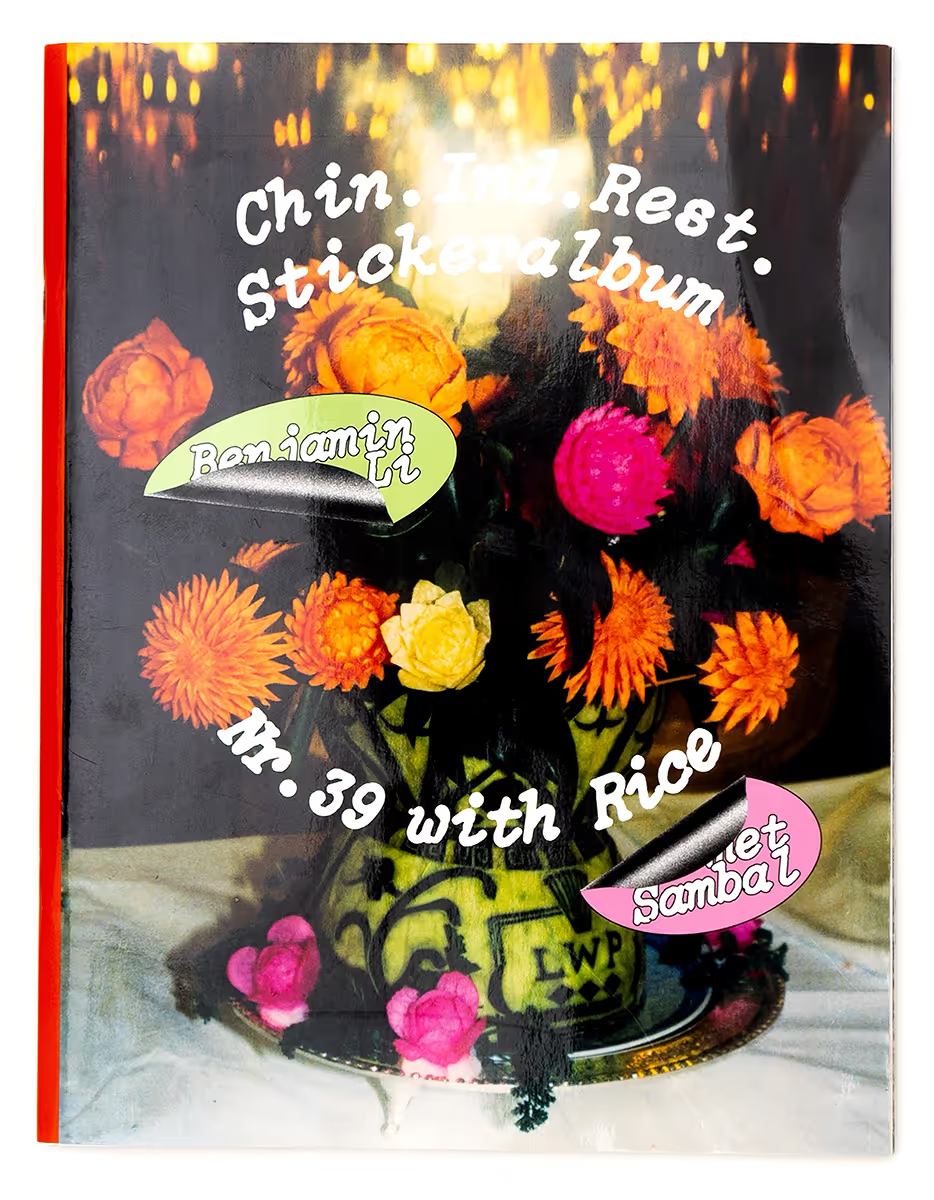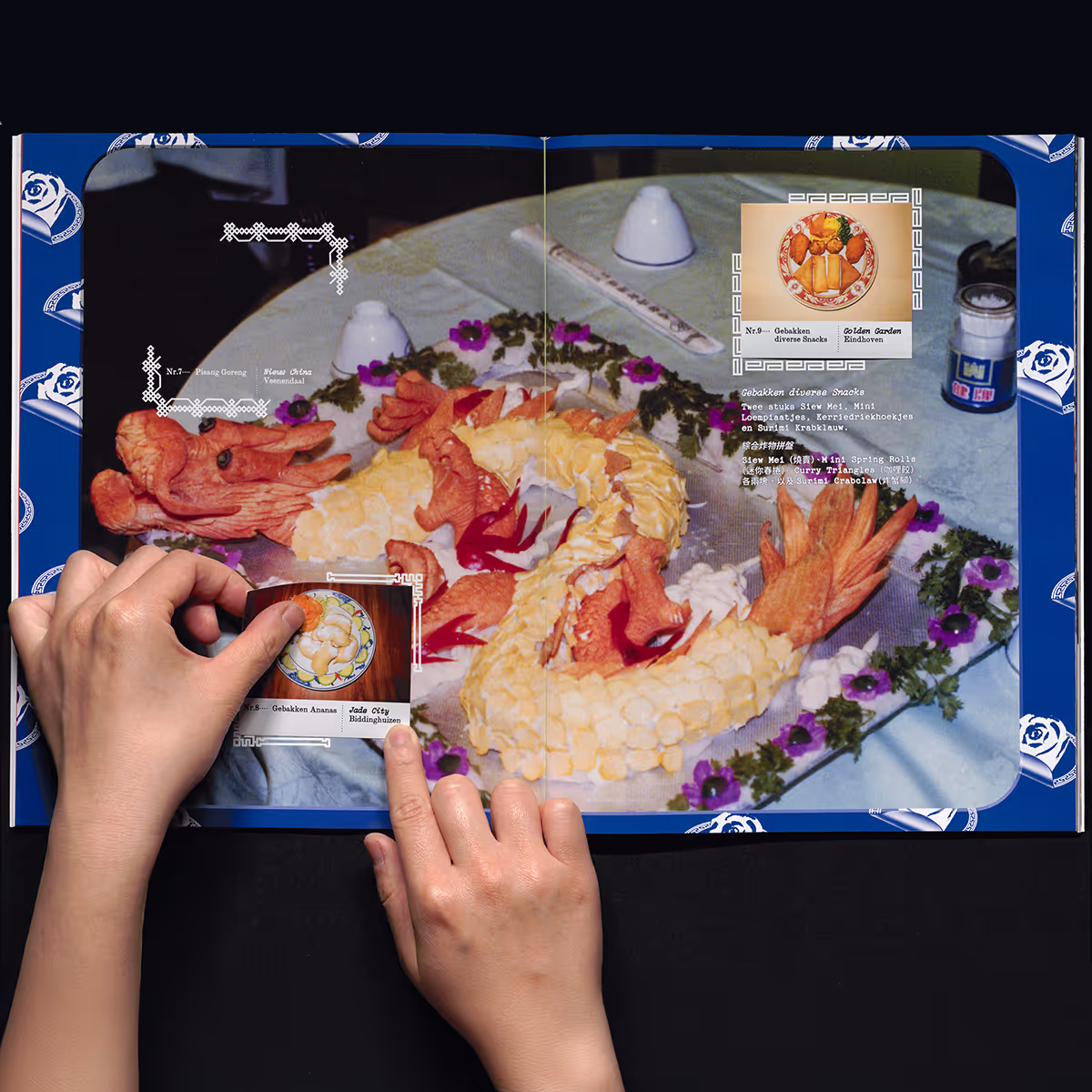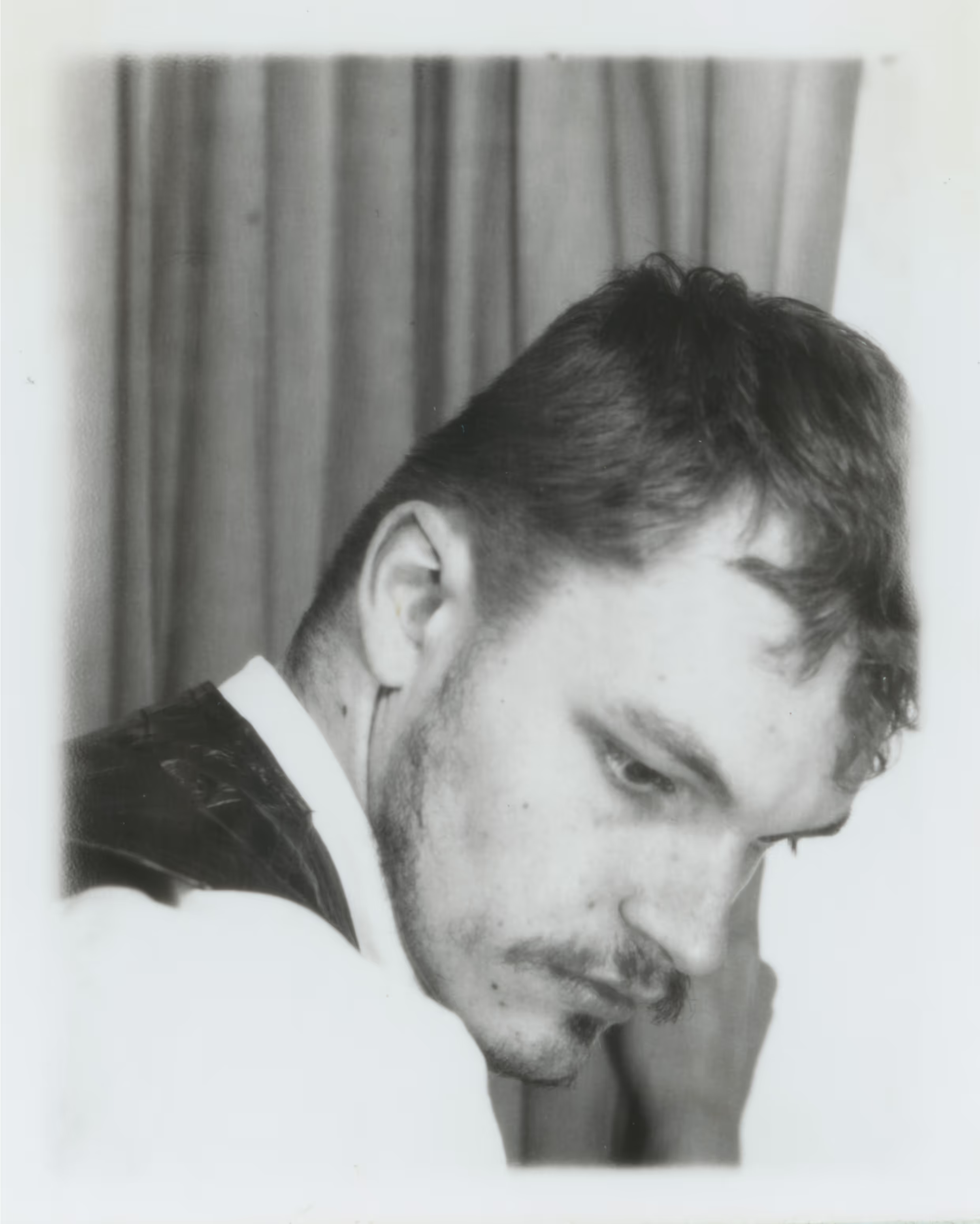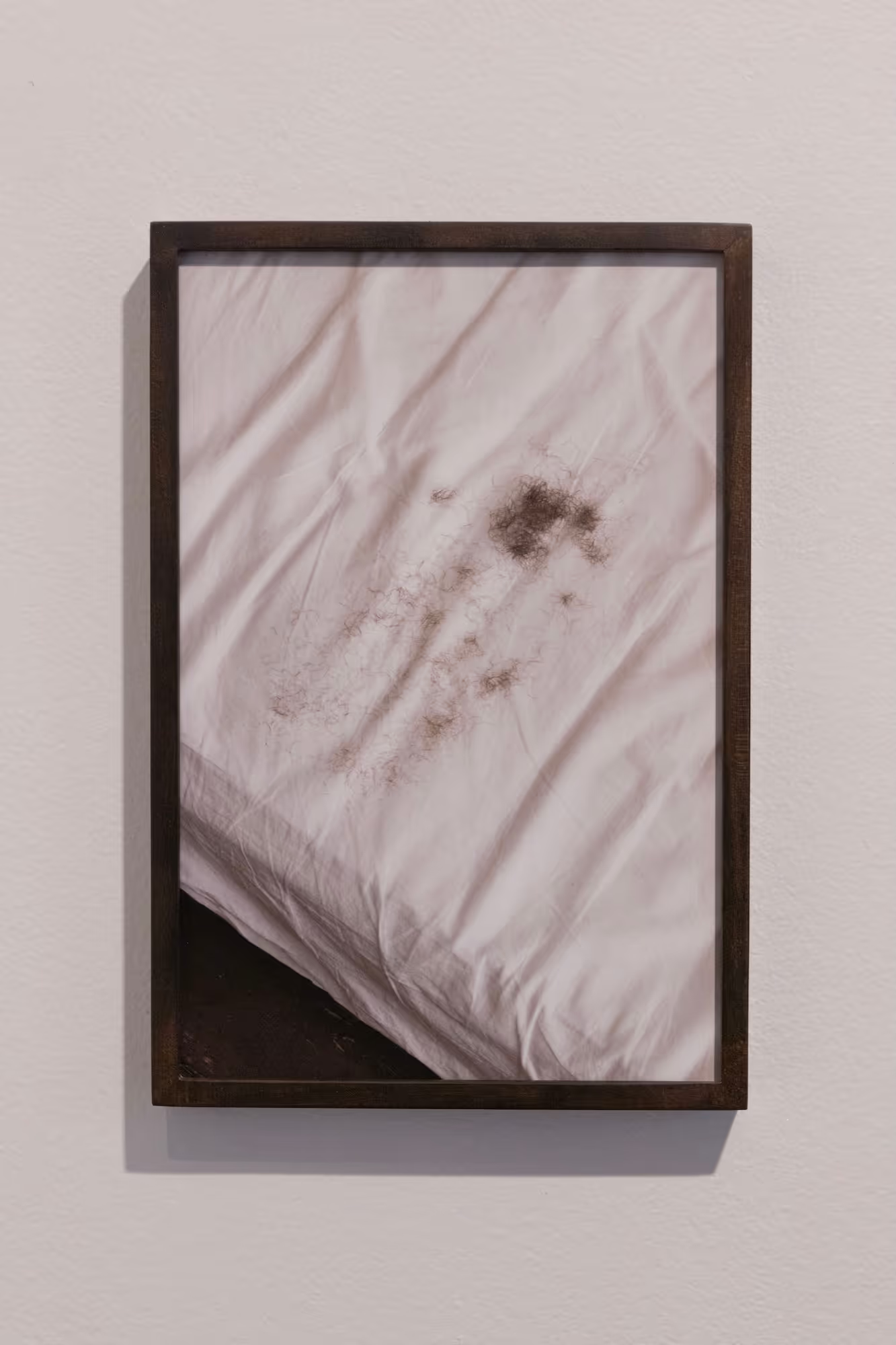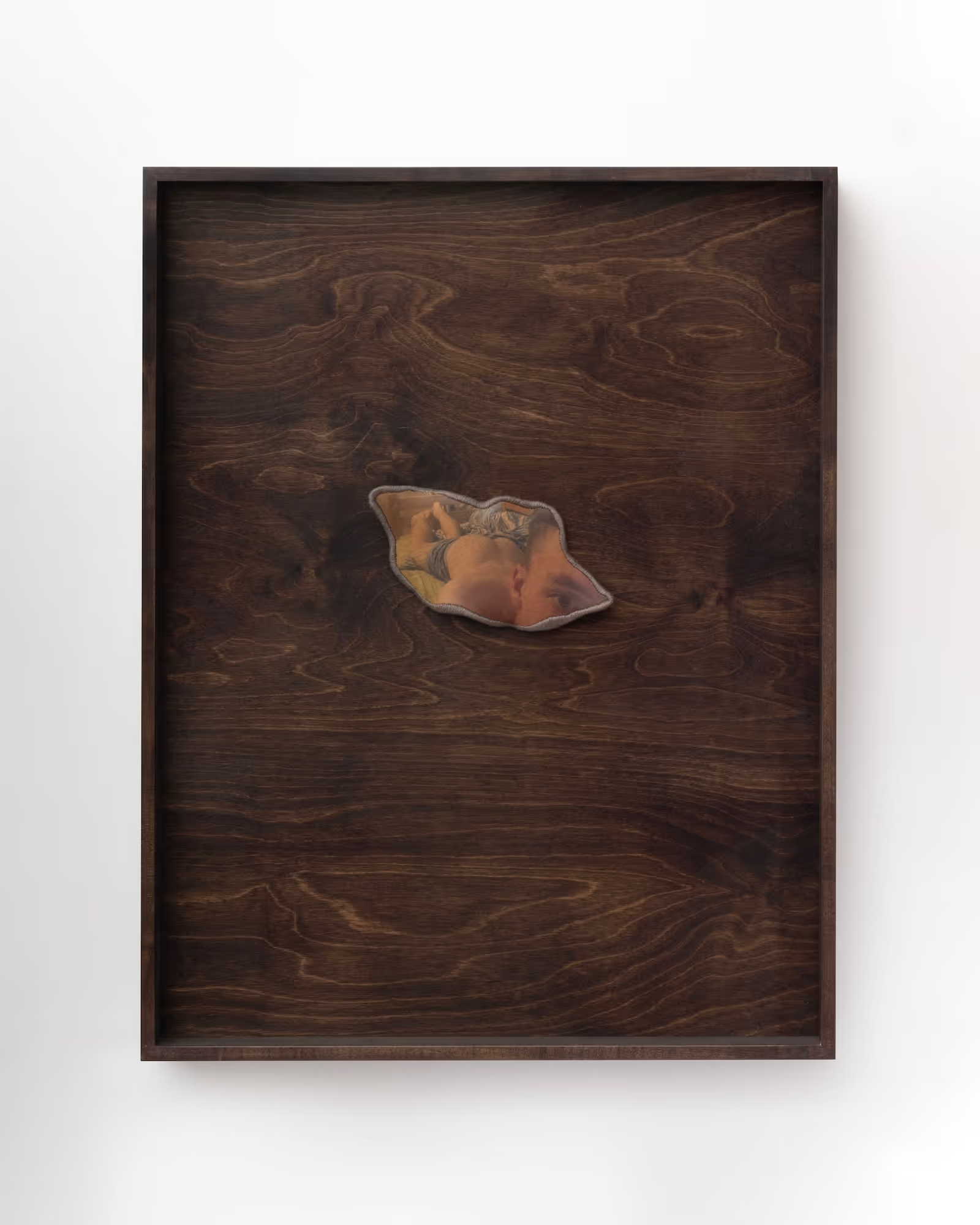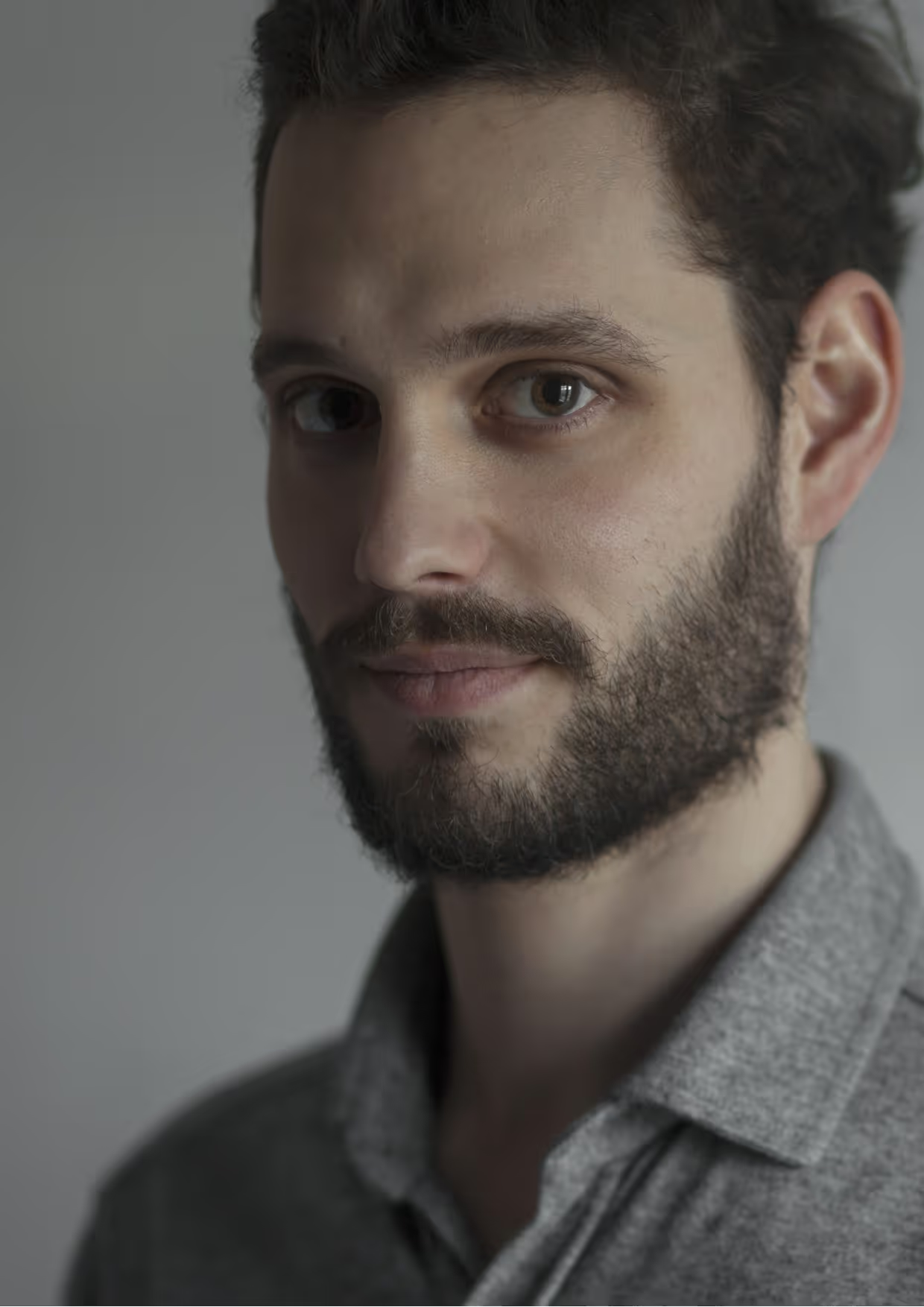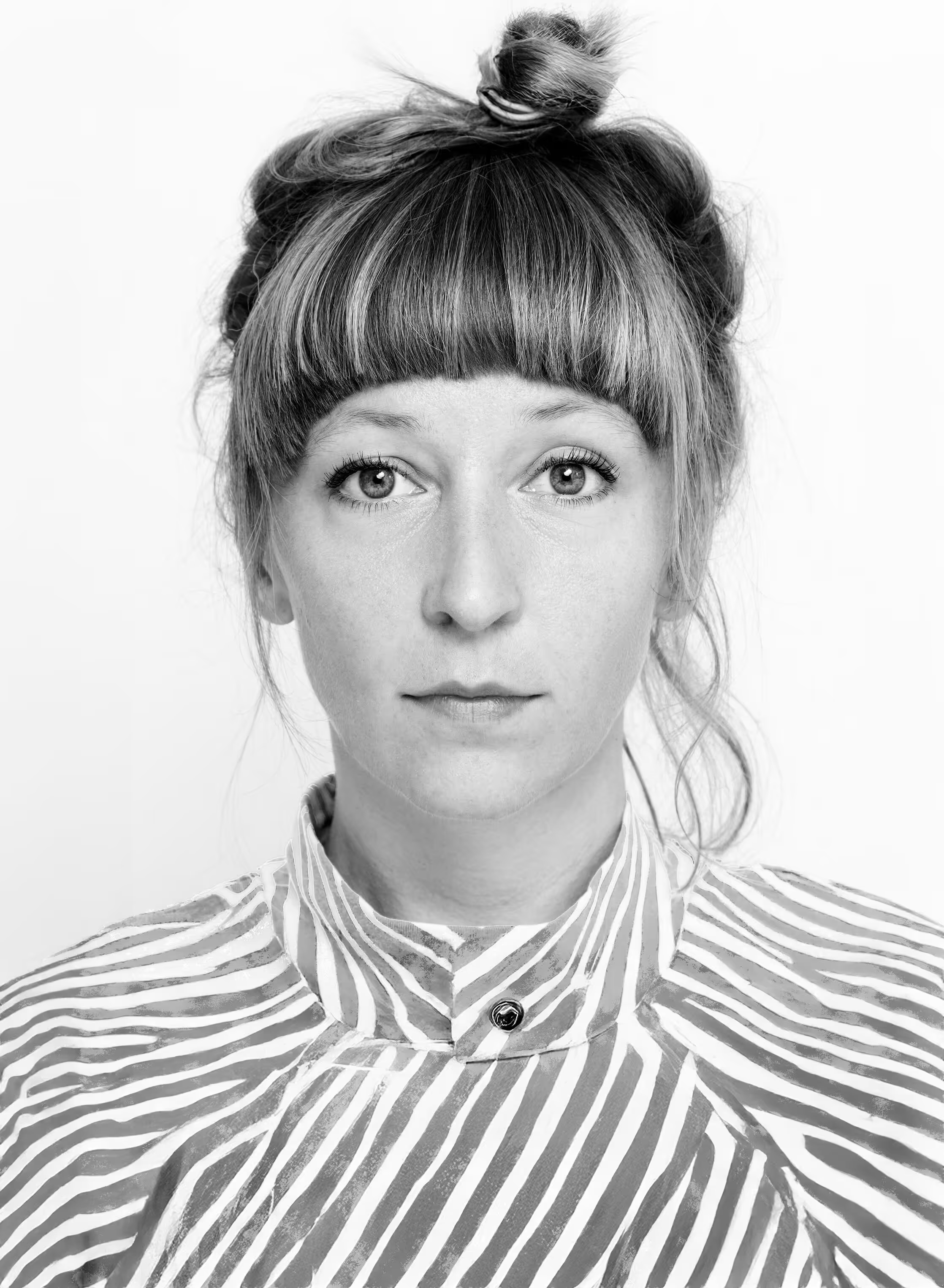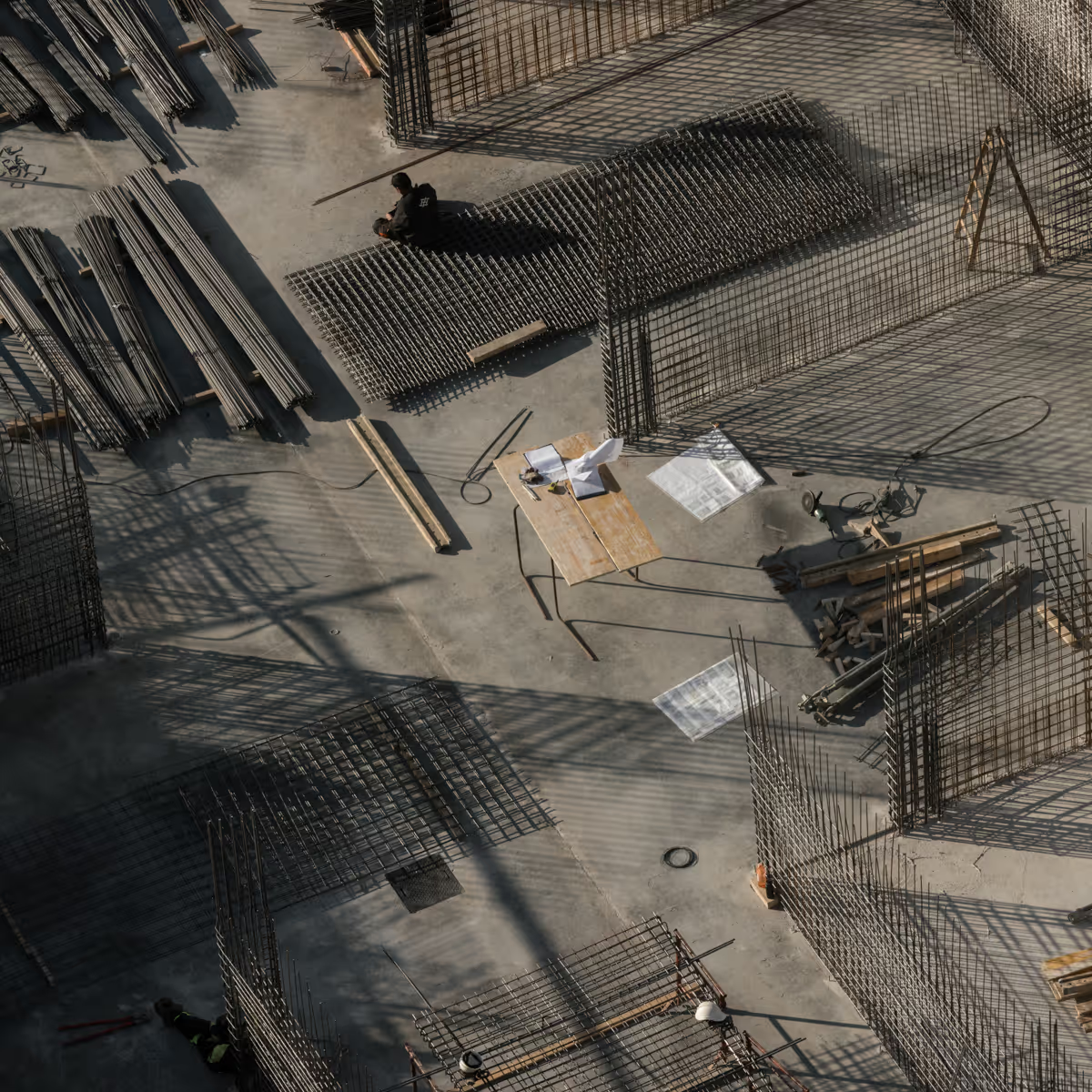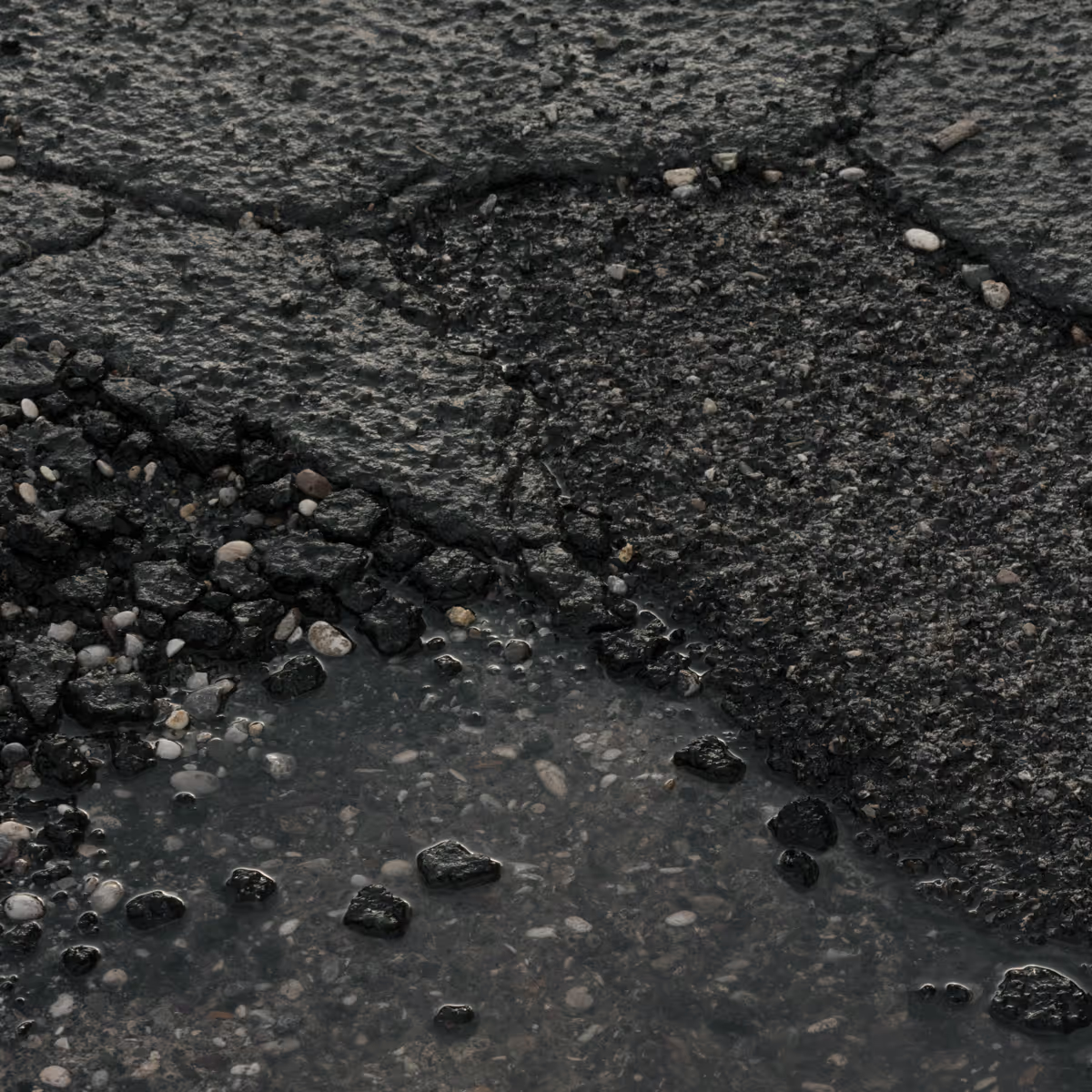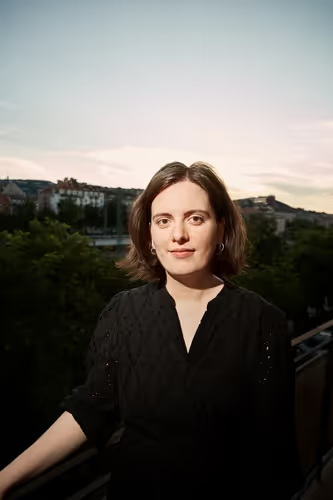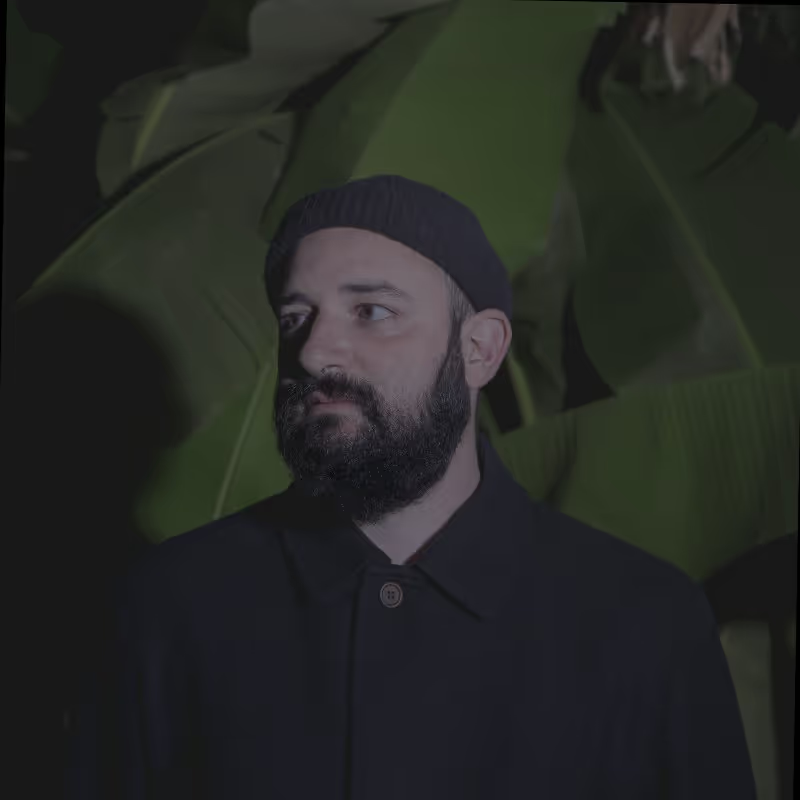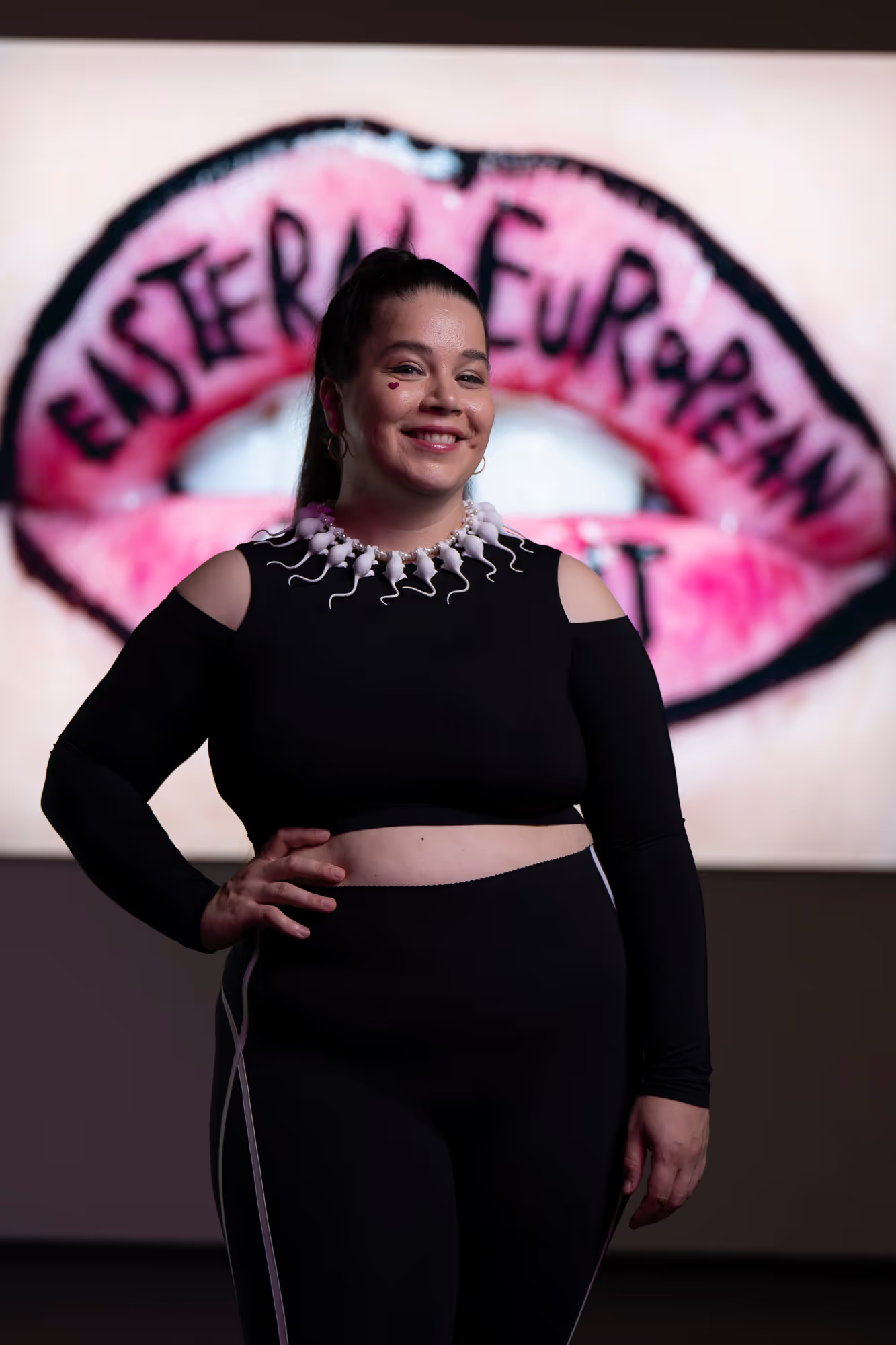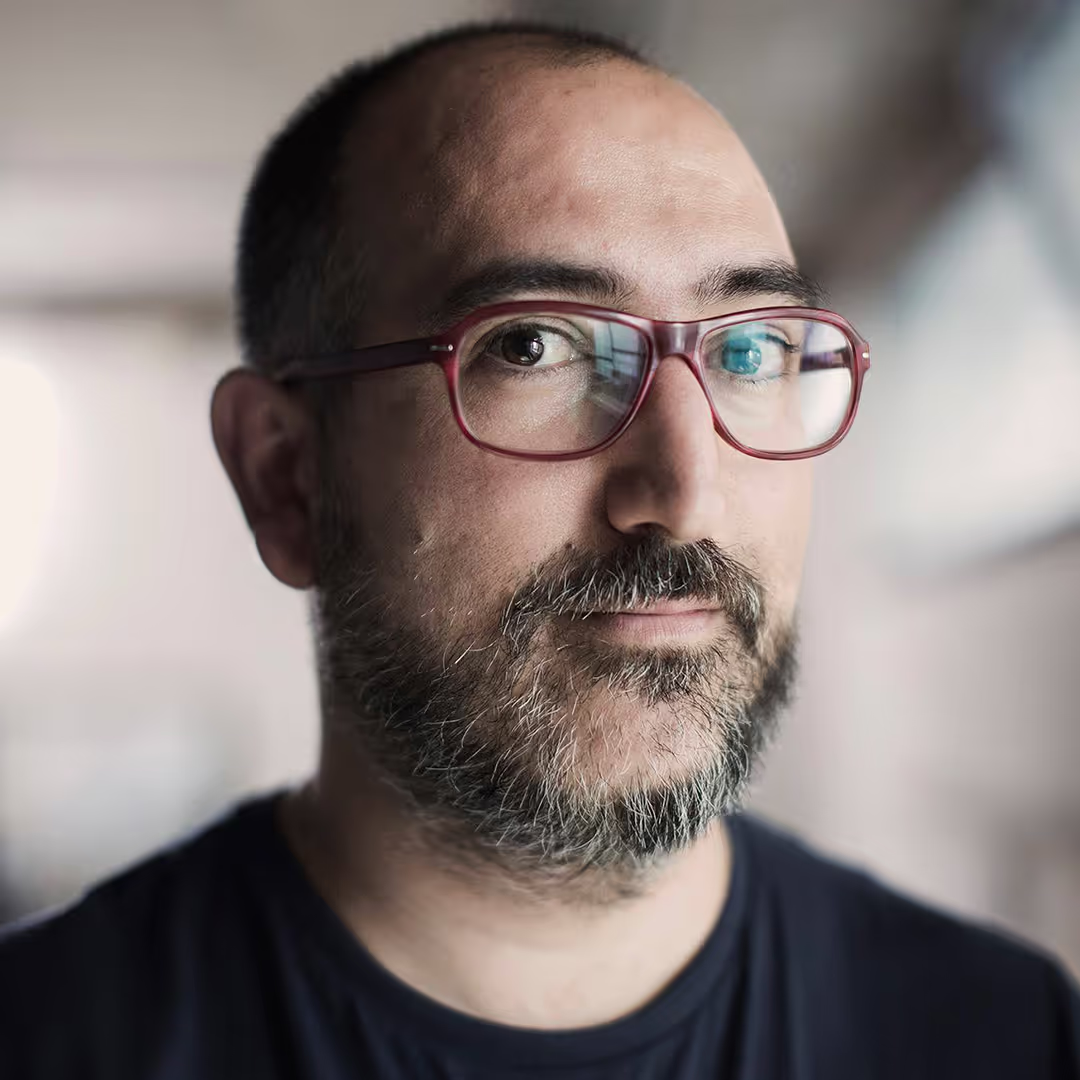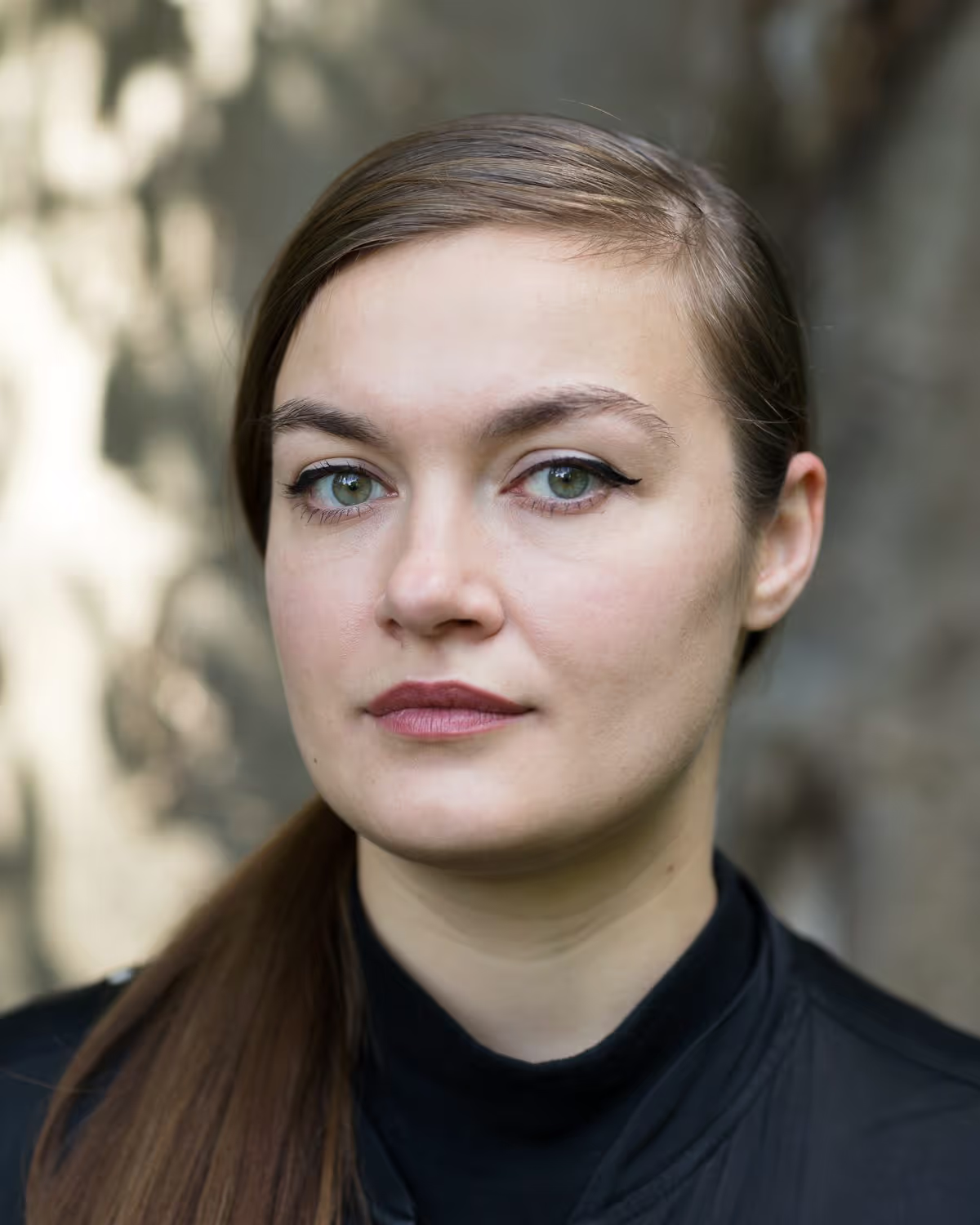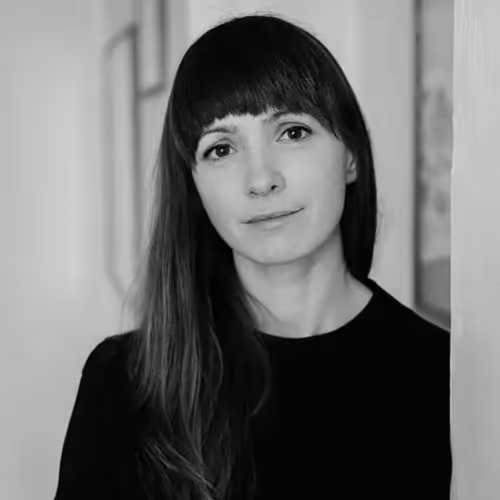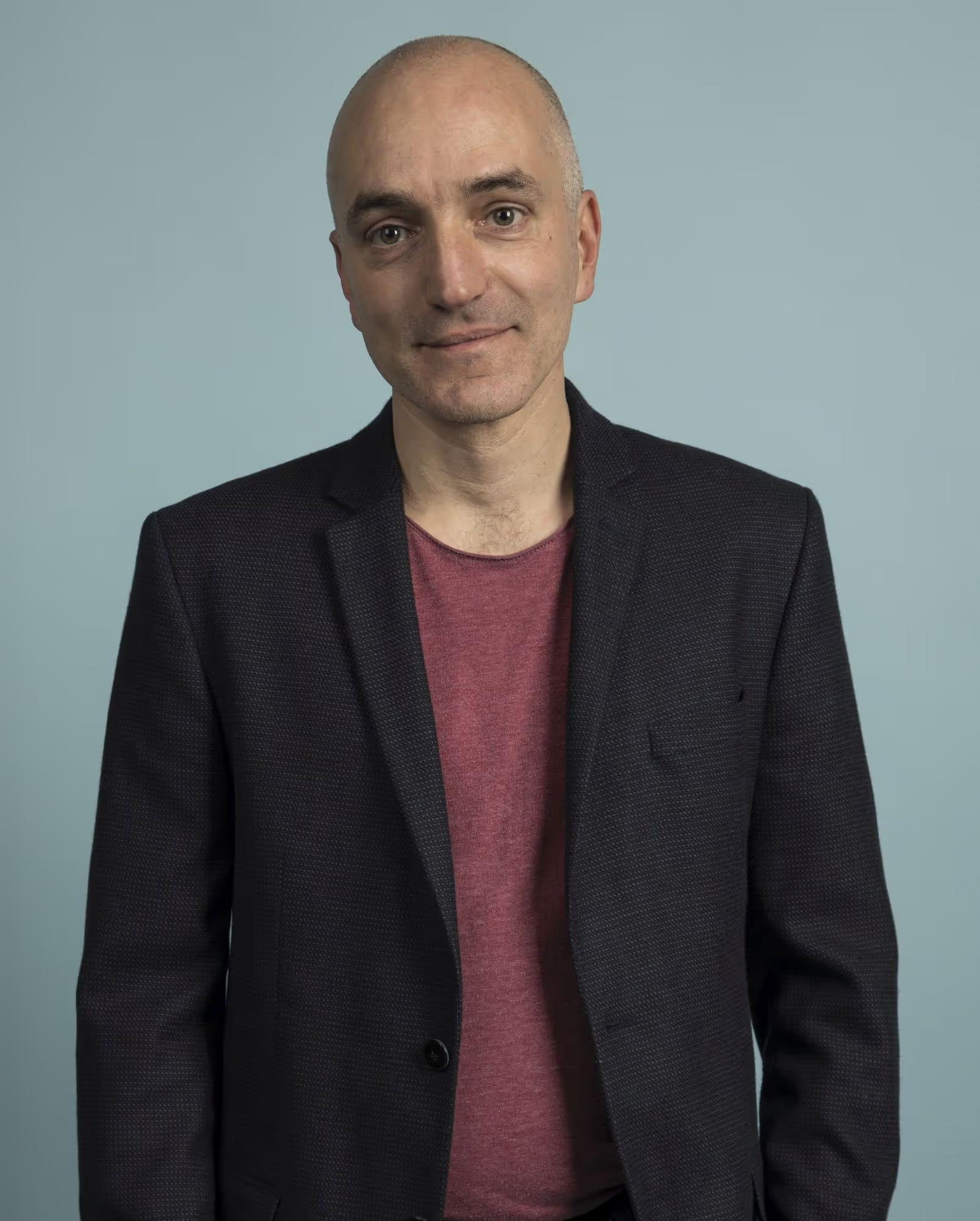
Artist
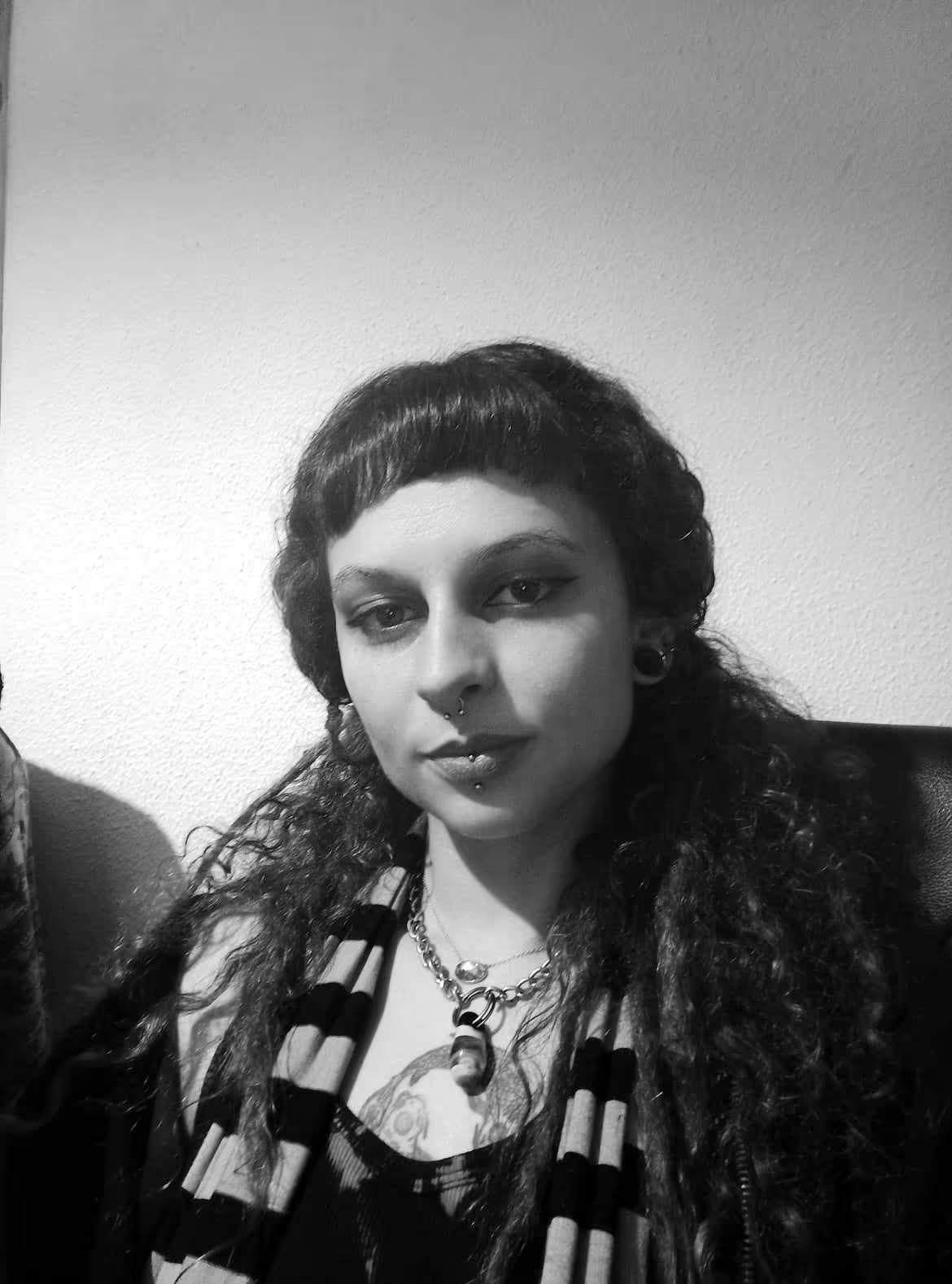
Jéssica Pereira Gaspar
Jéssica Pereira Gaspar is a Portuguese transdisciplinary artist, born in Coimbra in 1996. She began her academic journey in sciences and technologies, which profoundly influenced her methodology, research focus, and creative practice. She earned her Bachelor's degree in Visual Arts from Universidade Lusófona de Lisboa and her Master's degree in Visual Arts from Escola Superior de Artes e Design das Caldas da Rainha.Currently, she is pursuing a PhD in Science and Technology of the Arts at the Catholic University of Porto, where she is developing research on interfaces for interspecies communication and artistic co-creation with different organisms.Her practice centers on interactions with other-than-human entities and their dynamic agency, seeking to unravel the intricate relationships between living organisms and matter. By integrating multiple mediums such as image, video, sound, and organic materials as catalysts for immersive experiences, her work creates a space for reflection on the interconnectedness of all entities. In 2022, she was awarded a scholarship for an art residency at RAMA, where she developed the solo exhibition Spectacular Instability. She also participated in Zonas deTransição (2023), a project by the PLMJ Foundation, showcasing Transmutations II, a piece later included in the foundation's collection. Her work has been featured in group exhibitions such as A Certain Practice of Attention (2023) and the XXII Biennial of Cerveira (2022). In 2024, her work was included in the Portuguese Emerging Art book, the Millennium BCP Young Art Award from which she was awarded the Portuguese Serigraphy Center Award.In 2025, she was one of the five artists to be selected to represent Porto and Ci.clo Platform in Futures Photography Festival of 2025.
Seeing d'light in a foggy memory
Refractions
Ensaio sobre a cegueira
Cells
Drawing inspiration from Walter Benjamin’s ideas on mechanical reproduction and perception, this work investigates how digital apparatuses can expand our sensory
capabilities. The camera, or other technological devices, become an extension of vision, unveiling layers of reality beyond what the naked eye perceives. Just as microscopy revealed hidden worlds, digital tools allow us to see alternative structures in the everyday, emphasizing the interplay between the organic and the artificial. This project explores how ordinary objects, when seen from new perspectives, can resemble microscopic organisms, revealing reality as an interconnected pattern. The images challenge our perception of the mundane by transforming the familiar into something that can resemble a living cell in a process of division.
The distorted images evoke cell structures, bacteria, or even embryonic forms, questioning the boundaries between the micro and macro, natural and artificial. The contrast between organic-looking shapes and technological intervention invites viewers to reconsider how we define life, perception, and materiality. By manipulating perspective, light, and movement through usage of digital tools, Cells encourages a deeper reflection on how the mechanisms of perception shape our understanding of the world. The project seeks to bridge scientific observation with artistic experimentation, revealing a hidden continuity between the visible and the imperceptible.
This is not another screen
Symbiophone
River drawings
Diffractions
Inês Quente’s They Dream Not is a research project, initiated through an ArtsIceland international artistic residency and expanded in Aveiro, Portugal. The work, incorporating alternative and historical photography, analog film, drawing and collage, investigates places rich in nature, with diverse geography and weather conditions, to understand the profound relationship between the Earth and all its inhabitants (Animal/Plant/Fungus). Quente lives in Lisbon and has an MA in Documentary Filmmaking from the University for the Creative Arts, UK, and a BA from the Faculty of Fine Arts, University of Porto, Portugal.
Emanuel Constantino is interested in the practical process of photography in analog format and the unpredictability of the results it offers. His project (…) se elas houverem, a gente vai tirá-las (if there are any, we'll take them out) examines the universe of documentary and fiction in their various intersections and interactions. This curious, inventive body of work was activated by Constantino’s discovery of an online archive – the 1995 Radio and Television Portugal broadcast titled ‘Rumour about Piranhas in the River Ave’. Constantino lives in Porto and has a BA in Photography from the School of Media Arts and Design in Porto, Portugal where he is currently undertaking a MA in Cinema and Photography.
Drawing inspiration from Walter Benjamin’s ideas on mechanical reproduction, Jessica Gaspar’s project Cells investigates how digital apparatuses can expand our sensory capabilities. The camera becomes an extension of vision, unveiling layers of reality beyond what the naked eye perceives. Just as microscopy reveals hidden worlds, Cells proffers an alternative lens to the everyday, an intersection between the organic and the artificial. Gaspar lives in Porto and holds a PhD in Science and Technology of the Arts from Universidade Católica Portuguesa, Porto, Portugal and a BVA from the Universidade Lusófona, Lisbon, Portugal.
To João Bragança Gil João The Origin (On&On) is a type of ‘origin’ that approaches and retreats, meets and diverges. The project utilizes pre-digital media of carousel and photo slides to project a circular notion of time. The tangibility of the process slows time and creates a reflective viewer engagement, with time, as we know it, transformed. Based in Lisbon, Bragança Gil has a BA in Industrial Design from the School of Arts and Design, Caldas da Rainha, Portugal; an MA in Industrial Design from Central Saint Martins, UK, and a BA from the Faculty of Fine Arts, Universidade Lisboa, Portugal where he is currently pursuing a PhD in Media Arts.
Patrícia Assis's project terceira pálpebra (third eyelid) brings together a photographic series taken in urban spaces. The monochromatic images appear as a collection of apparently opaque, inert gestures, as if paralysed in an uncertain time, but which simultaneously reveal a city in movement and transformation. Lisbon based, Assis has a an MA in Culture Studies from the Universidade Católica Portuguesa, Lisbon, Portugal, and is a Post-Graduate in Contemporary Photography Discourses, Faculty of Fine Arts, Universidade de Lisboa, Portugal.
Selection committee
Virgílio Ferreira and Jayne Dyer | Co-Artistic Directors, Bienal Fotografia do Porto 2025
Vera Carmo | independent curator
